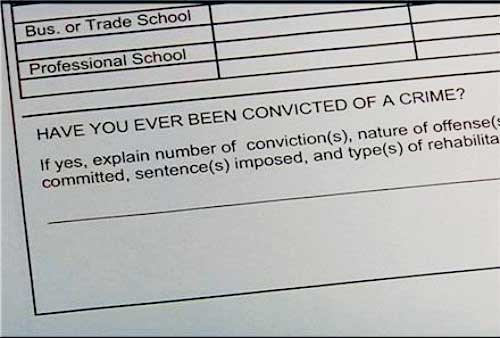DO YOU BELIEVE YOU MAY BE UNDER INVESTIGATION?

If you have any reason to believe that you may be under criminal investigation, your best bet is to continue with care. What you do next could have serious consequences in your future if you end up facing criminal charges. Do not leave anything to chance. At the first indication of a criminal investigation, Pre-indictment investigations are one of the best tools that a potential target can utilize.
WHAT IS AN INDICTMENT?
You have likely heard the phrase “he is being indicted” from various television shows or news programs. The media often portrays an indictment as if the person indicted is guilty of committing a crime. This is not the case. All that an indictment means is that a grand jury has decided that there is probable cause to charge someone with committing a crime.
A grand jury is a group of ordinary citizens tasked with investigating suspected criminal activity to determine whether someone suspected of a crime should be brought to trial. If a prosecutor believes that someone has committed a felony that is potentially punishable by more than one year in prison, the prosecutor must get the permission of the grand jury to continue the case further.
The grand jury then investigates the suspected criminal activity by hearing from witnesses and reviewing any physical evidence. For the case to continue beyond that stage, the grand jury must find that there is probable cause to charge the suspect with a crime. When the grand jury decides that there is probable cause, the formal document that is issued is called an “indictment.”
Once a person has been indicted, the case is set for trial and the prosecution must present the government’s evidence in court. At this point, the defense may also present any evidence acquired to poke holes in the prosecution’s case.
WHAT IS A PRE-INDICTMENT INVESTIGATION?
At Inter-State Investigations, when a client comes to us because he/she believes he/she is going to be arrested or indicted, we focus all our efforts to gather evidence that will exonerate the individual.
We begin by carefully analyzing the case to develop possible witnesses and additional evidence. We then conduct a thorough and extensive background investigation on the accuser to include identifying a criminal history, financial difficulties, mental health issues, and compromising social media posts. We also conduct interviews of possible witnesses and canvass incident scenes to gather as much information regarding the accuser and alleged incident as possible. Often, our investigations lead to additional witnesses and evidence.
We then compile the information gathered into a comprehensive report and forward to law enforcement or the prosecutions, along with DVDs, photos, and any other evidence collected.
Our research is so involved that we frequently find witnesses and evidence that law enforcement missed or did not think to pursue.
WHY CONDUCT A PRE-INDICTMENT INVESTIGATION?
A client does not — and should not — desire a trial if it can be avoided. Trials are expensive, filled with risk, and are stressful for the client. Oftentimes armed with the fruits of an extensive witness investigation we have approached the government and shown part of our hand in an effort to get them to back off their prosecution of our client.
Individuals who are suspected of being involved in a crime are at a critical juncture. In situations where a crime has allegedly been committed but no charges have yet been brought, law enforcement officers and prosecutors may be undertaking efforts to gather sufficient evidence to charge someone with the crime. At the completion of such a pre-indictment investigation, a prosecutor may choose either to press charges or decline to prosecute. Having seasoned pre-indictment investigators is absolutely necessary to ensure the best possible outcome, which can include halting the entire investigation and indictment process.
HOW CAN A PRE-INDICTMENT INVESTIGATION HELP YOU?
Commonly, defenses are put together quickly or rely merely on challenging the evidence turned over by the government. Clients are usually too trusting of their criminal attorney and often do not realize how much more can be done to help their efforts to avoid conviction — or even a trial. When criminal lawyers rely solely on the government’s discovery to prepare a defense, they are simply following the government’s game plan toward conviction.
However, at Inter-State Investigative Services, our highly skilled and experienced investigators have produced such damaging evidence against the government’s case, that numerous cases have been voluntarily dismissed by the government, always due to a thorough and extensive investigation of the accuser as well as the government’s possible witnesses. When our findings have been presented to law enforcement or the prosecutors, many cases have led to dismissals simply because it was clear that the government’s case could not withstand the complete impeachment of its main witnesses.
Such intensive witness preparation is devastating to the government’s case and law enforcement officers tell us that the witness’s credibility has been completely shattered.
HOW DO YOU START?
If you have been accused of, or have been arrested for, a crime you did not commit, DO NOT TALK TO LAW ENFORCEMENT OR THE PROSECUTION!
Immediately speak with an attorney or, if you don’t know if you are at the point where you need to obtain an attorney, speak with one of the experienced investigators at Inter-State Investigative Services. We will help you navigate through the initial stages of this very stressful process and, if you have not already retained an attorney, we can recommend one to you. We work with some of the best attorneys in Arizona and the United States.
We are champions of the wrongly accused and we investigate your case as if you were a part of our family. We leave no stone unturned and will provide you with the best chance of exoneration.
To begin your preindictment investigation Submit a Request now, or call IISAZ Toll-Free now at 1-800-729-0311.











